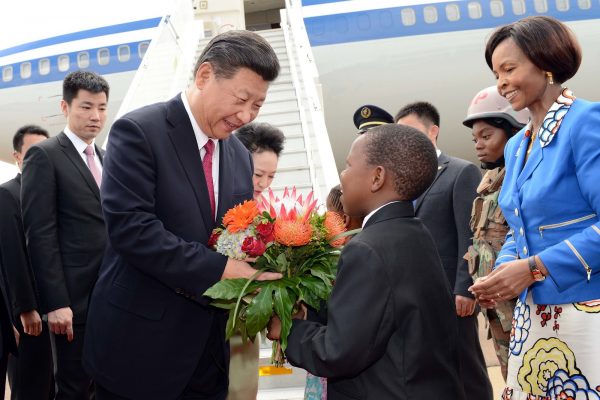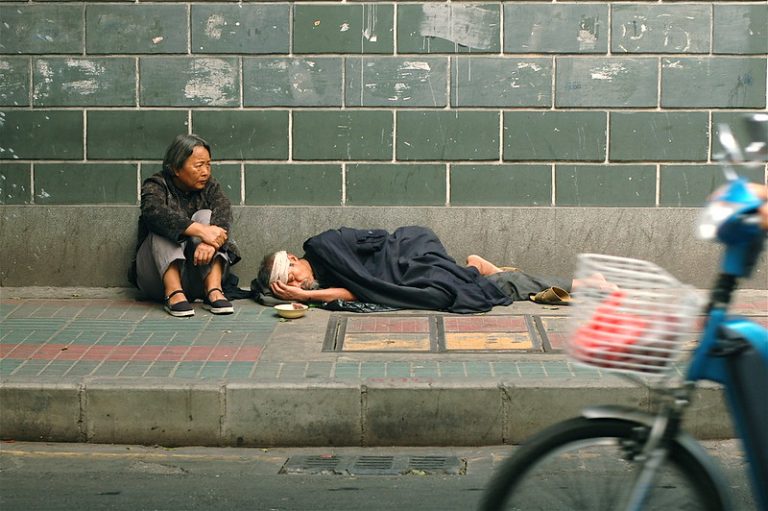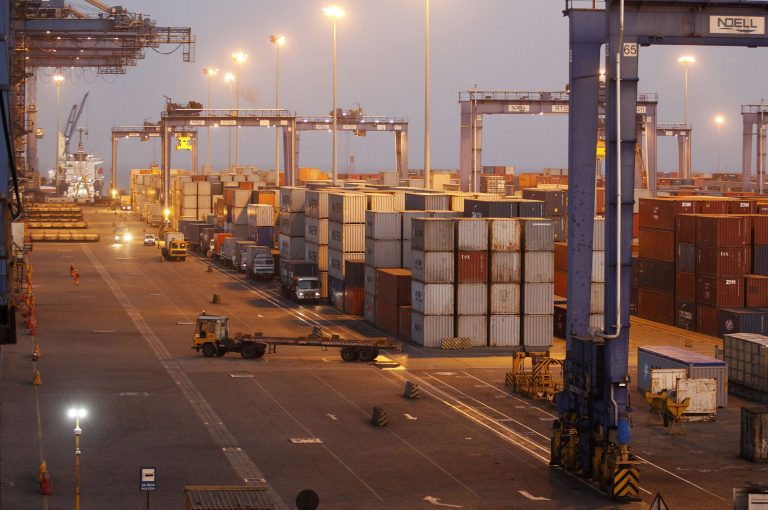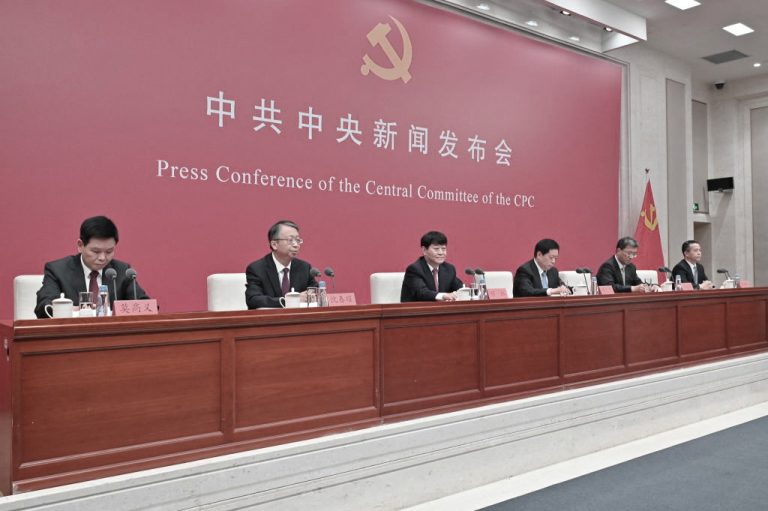The “arduous task of eradicating extreme poverty has been fulfilled,” Chinese leader Xi Jinping proclaimed in a Feb. 2021 speech during an official ceremony. “According to the current criteria, all 98.99 million poor rural population have been taken out of poverty, and 832 poverty-stricken counties as well as 128,000 villages have been removed from the poverty list,” Xi said.
The milestone seemed to fulfill Xi’s vow made in 2015 to eradicate extreme Chinese poverty by 2020. However, China’s self-assigned poverty line of US $2.30 a day is just 40 cents above the lowest World Bank poverty line of US $1.90. The World Bank describes China as “an upper-middle-income country and the world’s second largest economy.”
If judged by its appropriate higher-income classification with a poverty line of U.S. $5.50, China had 328.7 million, or 23.4 percent, of citizens below the poverty line in 2016. By contrast, China only had 7.2 million, or 0.5 percent, of citizens living below the international poverty line of US $1.90 in 2016. The South China Morning Post reported that in 2020, 13 percent of the Chinese population remained below the U.S. $5.50 poverty line.
Underlying the poverty success story is the fact that local governments have accumulated a significant portion of more than $1 trillion in loans over five years, which must eventually be repaid. With regard to villagers who have become reliant on state aid, Chinese poverty alleviation official Ou Qinping stated, “Once alleviation policies are suspended, they are likely to return to poverty.” In other words, state aid will only temporarily boost income for several households.

Besides modifying international definitions to achieve its goals, the Chinese Communist Party (CCP) has also attempted to gain public favor by televising Xi’s visits to rural villages and glorifying success stories of citizens who became wealthy after accepting help from the CCP.
Chinese poverty ‘elimination’ a state-approved paradigm of success
Success
You are now signed up for our newsletter
Success
Check your email to complete sign up
The CCP’s approach to reporting is bold and flamboyant, often to such a degree that Chinese netizens have publicly criticized the state media. News articles commonly show brushed-up images of Xi surrounded by grateful villagers, reminiscent of Mao’s propaganda posters.
The story of Dong Heqin is no exception. Once a lowly farmer from Anhui province, Dong quickly rose to fame as the face of China’s anti-poverty propaganda.
According to the narrative, Dong was left in abject poverty in 2014 after paying for his sick son’s medical bills with his life savings. However, with the guidance of CCP officials in 2015, Dong started to plant chili peppers on his land. In 2016, the farmer received 6,000 Chinese yuan in industrial poverty alleviation funds, which allowed him to expand his operations.
“My planting technology had passed muster, and my peppers had been well received in the market. I want to expand scale, but I had no capital,” he said. With the funds, he purchased a new steel greenhouse and planted more peppers. According to media reports, Dong now enjoys profits of 600,000 Chinese yuan, or the US $93,000 per year.

A now-deleted WeChat article by a Chinese netizen pointed out several flaws in a video of Dong’s story that was released in May 2020. Dong is filmed next to a large propaganda billboard near the entrance of one of his greenhouses and is later shown laboring in one of his rows of peppers.
While Dong claimed to own 50 mu of land, the equivalent of 33,000 square meters, farmers in China normally only have access to 1 mu of land in Anhui or 666 square meters. It is unclear how Dong gained access to 50 times the normally allotted area of land for farmers in the area. Assuming transactions occurred to purchase the land, costs would have reached 2.5 million Chinese yuan, or almost US $390,000.
Furthermore, a high yield of peppers for one mu of land would be 1,500 kilograms, earning around 5,000 Chinese yuan. With 50 mu of land, the maximum amount Dong could make would be 250,000 Chinese yuan, less than half what he claims to make annually.
The author of the WeChat article ended by calling out the story as “standard rubbish” that is commonly produced by the CCP. The conclusion reads, “What is most lamentable is that such rubbish is absolutely everywhere!” Highly exaggerated numbers like those in Dong’s story, along with prominently displayed propaganda are apparently commonly used in Chinese media reports.
Follow us on Twitter or subscribe to our email list







